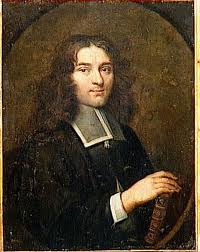Dictionnaire historique et critique: Difference between revisions
m (1 revision) |
No edit summary |
||
| (3 intermediate revisions by the same user not shown) | |||
| Line 1: | Line 1: | ||
====Date: [[:Category: | ====Date: [[:Category:1693|1693]] [[:Category:1698|1698]]==== | ||
====Region: [[:Category:Europe|Europe]]==== | |||
====Subject: [[:Category:Religious|Religious]]==== | |||
====Medium: [[:Category:Literature|Literature]]==== | |||
====Medium: [[:Category:Literature|Literature | |||
---- | ---- | ||
[[File:Bayle.jpg|left]] | |||
'''Artist:''' Pierre Bayle (1647 - 1706) | |||
'''Confronting Bodies:''' French government of Louis XIV and the Roman Catholic Church | |||
'''Confronting Bodies:''' French government of Louis XIV and the Catholic Church | |||
'''Dates of Action:''' 1693, 1698 | '''Dates of Action:''' 1693, 1698 | ||
'''Location:''' France, Holland | '''Location:''' France, Holland | ||
'''Description of Artwork:''' Bayle professed that religion and morality were separable, and that athiests could be as virtuous as Christians. <P> | '''Description of Artwork:''' Bayle professed that religion and morality were separable, and that athiests could be as virtuous as Christians. <P> | ||
'''The Incident:''' Bayle, a Huguenot, left France for the Netherlands in 1685, when Louis XIV's government persecuted Protestants and Calvinists. He became a professor of philosophy and history at the University of Rotterdam in 1685, but was dismissed in 1693. His most notable work, ''Dictionnaire historique et critique'' scrutinizes biblical figures, acknowledging them as "false when refuted by the clear and distinct perception of human reason." His book was placed on the Catholic Church's Index Librorum Prohibitorum in 1698. <P> | |||
'''The Incident:''' Bayle left France for the Netherlands in 1685, when Louis XIV's government persecuted Protestants and Calvinists. He became a professor of philosophy and history at the University of Rotterdam in 1685, but was dismissed in 1693. His most notable work, | |||
'''Results of Incident:''' Bayle was allowed to publish a second edition of his book in Holland. There, he was given freedom to express his beliefs and argue with his opponents <P> | '''Results of Incident:''' Bayle was allowed to publish a second edition of his book in Holland. There, he was given freedom to express his beliefs and argue with his opponents <P> | ||
'''Source:''' Censorship, A World Encyclopedia, ed. D. Jones | '''Source:''' Censorship, A World Encyclopedia, ed. D. Jones | ||
[[Category:1693]] | |||
[[Category:1698]] | |||
[[Category: | [[Category:1690s]] | ||
[[Category: | [[Category:17th century]] | ||
[[Category:Europe]] | [[Category:Europe]] | ||
[[Category:Religious]] | [[Category:Religious]] | ||
[[Category:Literature]] | [[Category:Literature]] | ||
[[Category:Pierre Bayle]] | [[Category:Pierre Bayle]] | ||
{{DISPLAYTITLE:<span style="font-style: italic;">Dictionnaire historique et critique</span>}} | |||
__NOTOC__ | __NOTOC__ | ||
Latest revision as of 02:20, 7 January 2012
Date: 1693 1698
Region: Europe
Subject: Religious
Medium: Literature
Artist: Pierre Bayle (1647 - 1706)
Confronting Bodies: French government of Louis XIV and the Roman Catholic Church
Dates of Action: 1693, 1698
Location: France, Holland
Description of Artwork: Bayle professed that religion and morality were separable, and that athiests could be as virtuous as Christians.
The Incident: Bayle, a Huguenot, left France for the Netherlands in 1685, when Louis XIV's government persecuted Protestants and Calvinists. He became a professor of philosophy and history at the University of Rotterdam in 1685, but was dismissed in 1693. His most notable work, Dictionnaire historique et critique scrutinizes biblical figures, acknowledging them as "false when refuted by the clear and distinct perception of human reason." His book was placed on the Catholic Church's Index Librorum Prohibitorum in 1698.
Results of Incident: Bayle was allowed to publish a second edition of his book in Holland. There, he was given freedom to express his beliefs and argue with his opponents
Source: Censorship, A World Encyclopedia, ed. D. Jones
